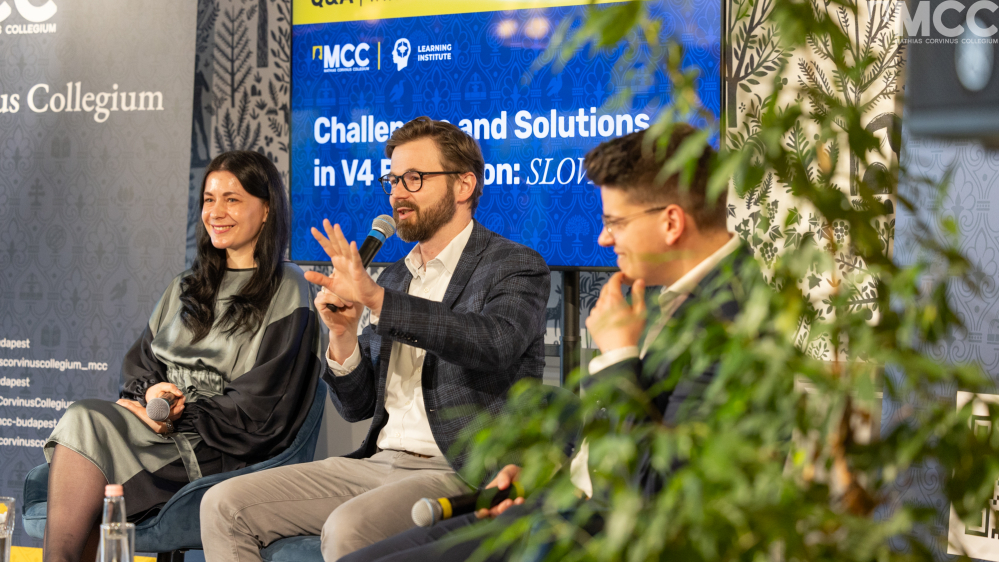On March 26, we hosted an inspiring roundtable discussion at the Learning Research Institute, welcoming distinguished guests from Slovakia’s Kolegium Anton Neuwirth.
The panel featured: Dr. Martin Luteran, Rector of the Kolegium Anton Neuwirth; Dr. Miroslava Durankova, Vice-Rector of the college and Head of the Great Works Academy; Matej Mosko, an alumnus of the Kolegium and the University of Cambridge; and Dr. Richárd Fodor, Research Lead at the Learning Institute.
The conversation opened with an insightful overview of the current state of higher education in Slovakia. The speakers emphasized that one of the most pressing challenges is the high proportion of Slovak students pursuing their studies abroad. Domestic universities struggle with low international prestige, which contributes to a brain drain and diminishes the country’s intellectual and academic vitality over the long term.
We then explored the story and mission of Kolegium Anton Neuwirth. Named after Anton Neuwirth, a Catholic priest who endured persecution during the Czechoslovak communist regime, the college embodies a tradition of intellectual courage and moral conviction. Its founders were inspired by the collegiate traditions of Western, primarily Anglo-Saxon, medieval universities, creating a residential educational environment. The curriculum focuses on philosophy, history, literature, ethics, and Catholic religious practice, nurturing both intellectual depth and ethical grounding in its students.
As vocal critics of the current educational system in Slovakia, the leaders of the Great Works Academy have launched a nationwide training initiative and founded both a primary and a secondary school. Their ambitious goal is to reimagine education in Slovakia, cultivating students who are not only academically prepared but also morally engaged and civic-minded. During the discussion, they shared how grassroots educational initiatives can invigorate and reshape the national educational landscape.
The roundtable provided valuable insights into the educational challenges and innovations of our neighboring country. It also served as an inspiring example of how value-driven education and strong community-building efforts can pave the way for meaningful, long-term change.



